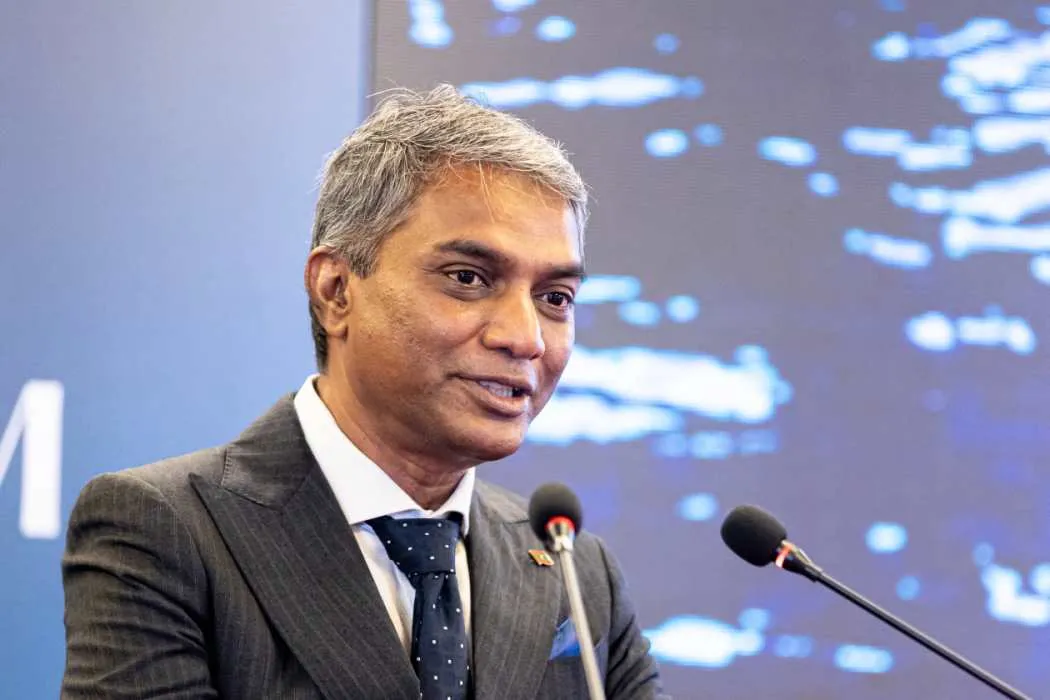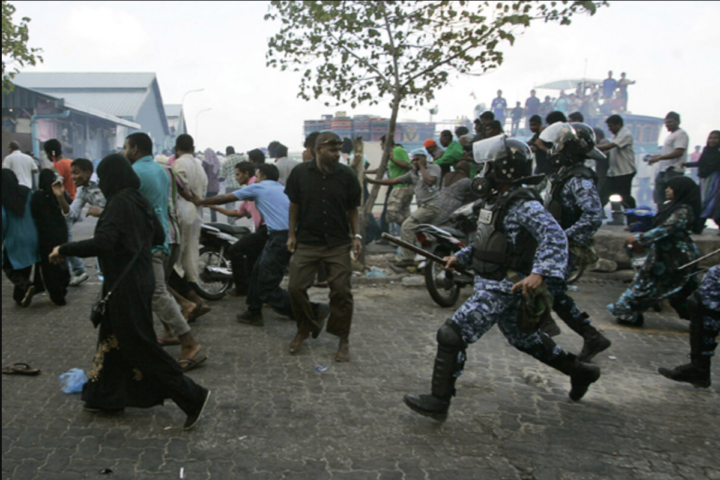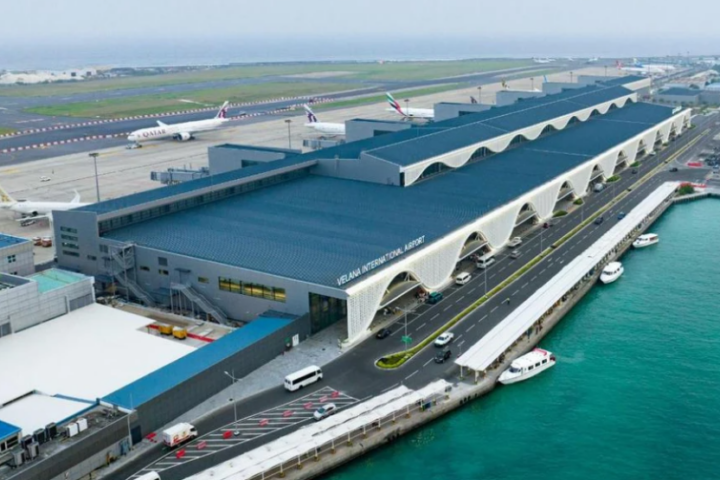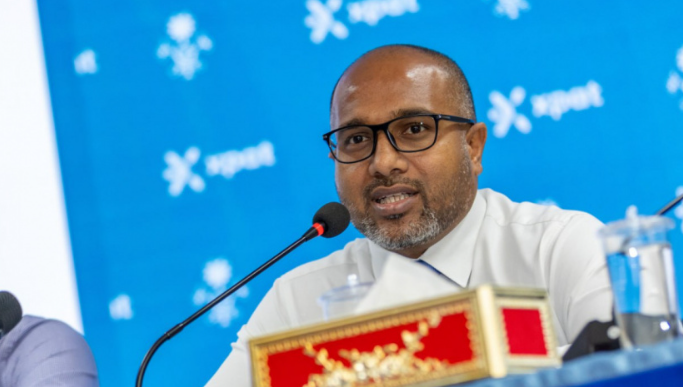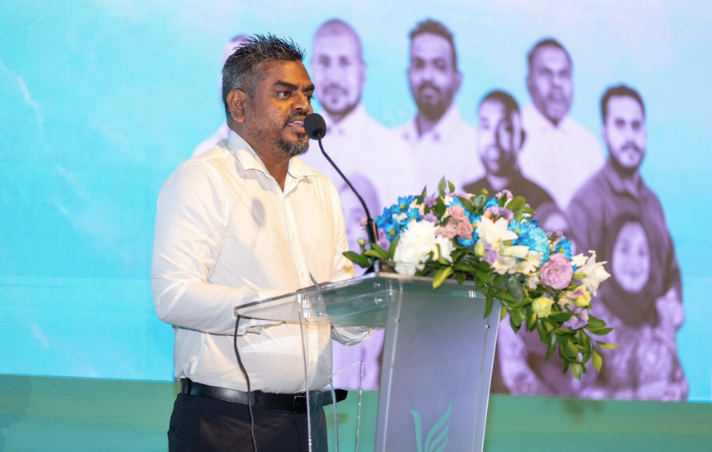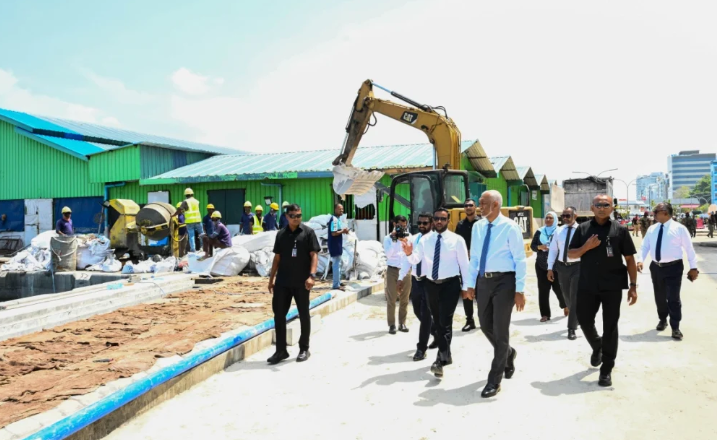Male’, Maldives — At the 2024 Construction Industry Forum, Mohamed Ali Janah, President of the Maldives National Association of Construction Industry, delivered a stark assessment of the state of the sector, highlighting both significant growth and daunting challenges. In his address, Janah outlined a complex landscape where rising credit support is overshadowed by labor shortages, bureaucratic delays, and financial bottlenecks.
In the first quarter of 2024, the construction industry witnessed a 6% increase in commercial bank credit, signaling confidence in the sector. “This growth reflects ongoing support for various construction projects across the country,” Janah remarked, urging the industry to recognize and build upon this positive trend. However, this optimism is tempered by a 9% decline in overall activity during the same period, largely due to project delays.
“These delays aren’t just numbers—they represent stalled progress, increased costs, and growing frustration for everyone involved, from investors to workers,” Janah warned. The delays, he explained, are exacerbated by a critical shortage of labor, particularly in a sector that relies heavily on an expatriate workforce. As the largest employer of expatriates in the Maldives, the construction industry is particularly vulnerable to the slow processing of labor permits and government approval of quotas.
The challenges do not end with labor shortages. Janah pointed to significant delays in obtaining permits, especially in the capital, Male’, where bureaucracy has increasingly become a stumbling block.
“These delays are more than just bureaucratic hurdles—they threaten our industry’s ability to maintain momentum,” he stated, noting that project timelines and budgets are thrown off course, leading to a cascade of missed deadlines and rising costs.
Another pressing concern is the difficulty in obtaining dewatering permissions in Male’, a critical process for managing groundwater in construction projects. The complexity and delays associated with securing these permissions add yet another layer of difficulty to an industry already grappling with numerous obstacles.
Adding to the woes is the ongoing challenge of securing foreign currency, particularly US dollars, which are essential for importing materials. Janah emphasized that the scarcity of foreign currency has led to delays in acquiring essential construction materials, further complicating efforts to keep projects on schedule and within budget.
The financial strain is further compounded by delayed government payments to contractors and suppliers, which have caused a cash flow crisis for many businesses.
“When payments are delayed, contractors who are already managing tight margins and heavy workloads are put under immense strain,” Janah noted, highlighting the ripple effects that these delays have on the entire sector, from disrupting ongoing projects to affecting the livelihoods of workers and suppliers.
Janah also underscored the importance of labor rights in the construction industry, particularly in ensuring that the sector aligns with international standards. He called for greater vigilance against human trafficking and emphasized the need for decent living conditions for all workers, both local and expatriate.
“Providing safe and sanitary housing, fair wages, and a dignified work environment are essential to maintaining the integrity and sustainability of our industry,” he stated.
As one of the largest employers in the Maldives, the construction industry’s health is directly tied to the broader economy. Janah warned that project delays, labor shortages, permit issues, and difficulties in securing foreign currency pose significant threats to employment rates and economic stability.
“When construction projects are delayed, it’s not just businesses that suffer—workers face uncertainty, families struggle, and entire communities feel the ripple effects,” he said.
In his concluding remarks, Janah called for a collaborative effort to address these challenges. “We cannot solve these issues alone. We call on the government, industry stakeholders, and our partners to come together and work toward solutions that will benefit us all,” he urged. His vision for the future is one of a resilient construction sector that not only drives economic growth but also supports workers and communities, delivering infrastructure that meets the nation’s needs.
As the forum concluded, the message was clear: the Maldives’ construction industry stands at a crossroads, with the potential for growth tempered by significant challenges that require urgent attention and collective action.
